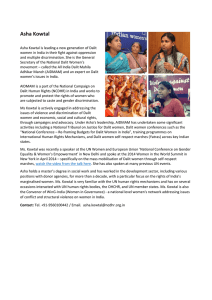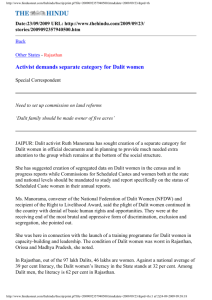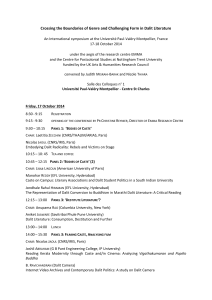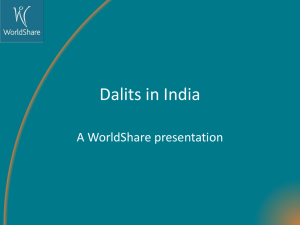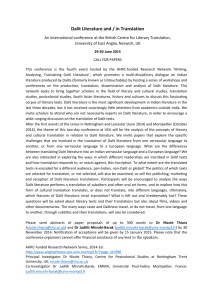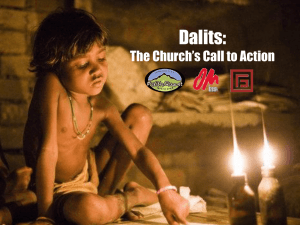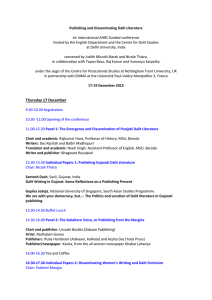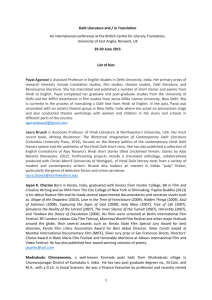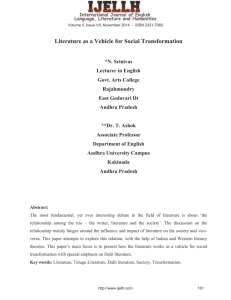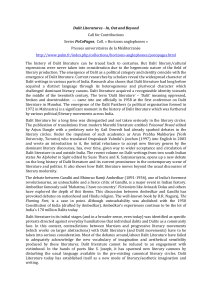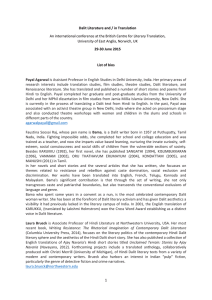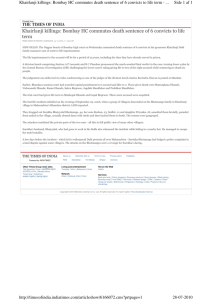Read more about this experience
advertisement
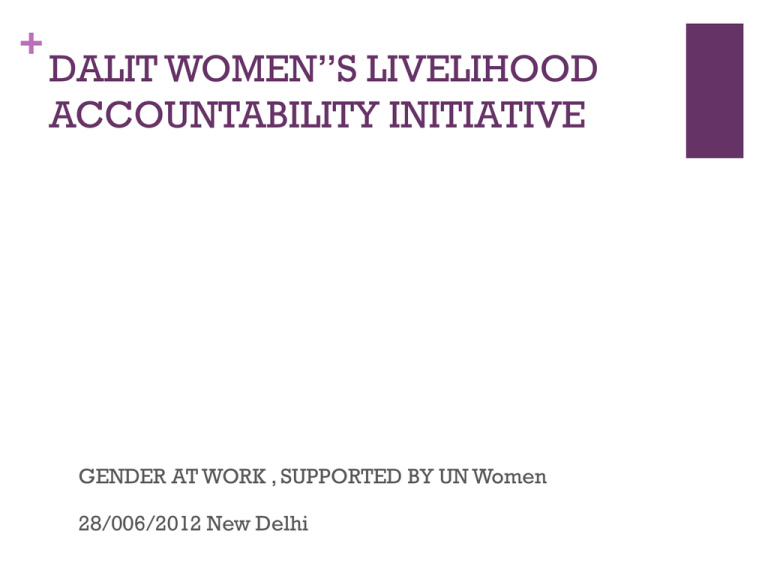
+ DALIT WOMEN”S LIVELIHOOD ACCOUNTABILITY INITIATIVE GENDER AT WORK , SUPPORTED BY UN Women 28/006/2012 New Delhi + DALIT WOMEN’s LIVELIHOOD ACCOUNTABILITY INITIATIVE Partnering with 4 organisations from UTTAR PRADESH on an intensive programme on Dalit women and livelihood. Lok Samiti (Varanasi) Parmarth (Jalaun) Sahajani Shiksha Kendra (Lalitpur) Vanangana (Chitrakoot, Banda) + RATIONALE FOR PROJECT To explore the three dimentions of gender and caste in the context of the right to work. This could be explored through an engagement with MGNREGA + MAHATMA GANDHI NATIONAL RURAL EMPLOYMENT GURANTEE ACT (MGNREGA) BRIEF HISTORY The National Rural Employment Guarantee Act was enacted in 2005 after a long struggle by trade unions, worker’s movements, women’s organizations, civil society groups and was supported by left parties. FEATURES: 100 days of work Unemployment benefits 33% reservation for women Equal wages for men and women + PROJECT GOALS Increasing Dalit women’s work participation rates within MGNREGA (Increasing the number of work-days Dalit women have access to by 30% (based on the baseline survey) Increasing Dalit women’s awareness levels regarding the legislation and increasing access to other entitlements (Increasing the number of job cards in the name of Dalit women; Ensuring that Dalit women have bank accounts in their own names; and Ensuring that work-site facilities (crèche, water, shade and medical supplies) are provided) Piloting innovative models of women’s engagement with MGNREGA that challenge prevailing stereotypes around women’s work (described below) Strengthening capacities of selected civil society organisations to work in the area of women’s economic rights and gender, with a specific focus on MGNREGA Advocating for policy level changes with regard to women’s access and engagement with MGNREGA at District and State levels. + PROGRAM DESIGN Started where organisations/community were at Built on existing strengths Participatory practises Peer Learning Gender At Work Team as resource persons Regular monitoring of processes + BEST PRACTISES + LOK SAMITI + LOK SAMITI CHANGE PROJECT Increased participation and leadership of Dalit women in the Labour Union (NREGA Mazdoor Union) Bringing Musahar and Muslim women into the workforce of MGNREGA RESULTS 50% Dalit women in leadership positions at present 2000 Dalit women members of the Union Allocation of 700 job cards for Musahar families Access of Muslim and Musahar women in the MGNREGA workforce + VANANGANA + VANANGANA CHANGE PROJECT Promote an all-women’s work-site Social audit process to be carried out by Dalit women RESULTS An all-women worksite (pond) was implemented at Basila village, where Dalit women were involved in the process from planning to implementation of the process was carried out by Dalit women. All the worksite facilities were provided at the work-site. A Dalit woman site –supervisor (Mate) was appointed. Work was carried out by 140 women over a 60 day period Dalit women were trained in the Social Audit process, which they did carried out across 5 villages. + SAHAJANI SHIKSHA KENDRA + SAHAJANI SHIKSHA KENDRA CHANGE PROJECT To prepare a module for Site Supervisors (Mates) Test and finalise the same RESULTS Preparation of a training module for Mates with a perspective on caste and gender A total of 134 neo-literate women trained as Mates of which ….gained employment at work-sites Led to advocacy efforts at the State level due to which 50 Dalit women were given a formal appointment as Mates + QUANTATIVE RESULTS TURNING THE WHEEL, we forge ahead… + LESSONS LEARNT ENGANGEMENT WITH PANCHAYATS PROVES TO BE A CHALLENGE, REQUIRES MORE INTENSIVE WORK SOCIAL AND CULTURAL BARRIERS COMEN IN THE WAY OF ESTABLISHING WORKSITE FACILITIES, SPECIALLY CRECHE AT WORKSITES DEEP CULTURAL AND SOCIAL BARRIERS WORK AGAINST ESTABLISHMENT OF WOMEN MATES (SITE SUPERVISORS) AND INSTITUTIONALSE THEM THROUGH STATE POLICIES QUANTATIVE LEADERSHIP OF DALIT WOMEN ESTABLISED STILL A LONG WAY FOR QUALITATIVE LEADERSHIP WORKING WITH STAKEHOLDES AT THE BLOCK, DISTRICT AND STATE LEVEL TO ENSURE SPACE FOR DALIT WOMEN TO BREAK BARRIERS THAT KEEP THEM FROM ACCESSING OTHER THAN MANUAL LABOUR OPPORTUNITIES UNDER MGNREGS + G@W Framework for Mapping Gender Equality Individual Change Women’s and men’s consciousness Informa l Women’s access to resources & opportunities Formal Informal cultural norms and exclusionary practices Formal laws, policies, etc. Institutional/Systemic change
